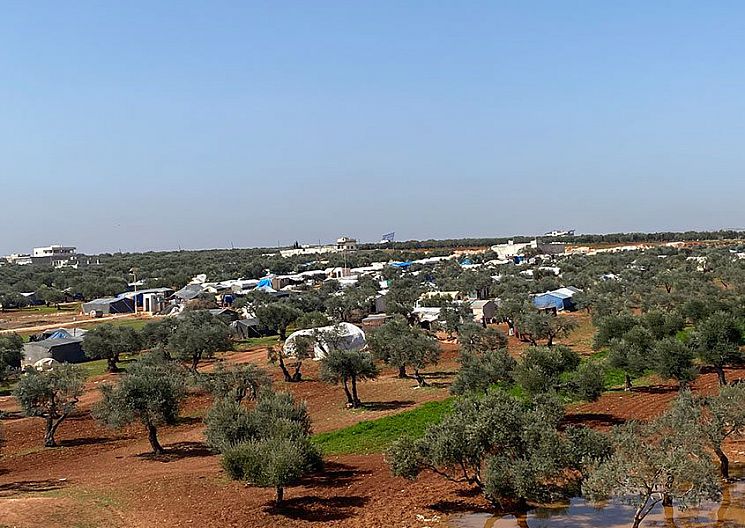Agricultural Voices Syria
A unique pairing of supply chain expertise and media skills is providing vital knowledge for thousands of agricultural workers in post-conflict Syria.

The Syrian crisis, which began in 2011, devastated the country’s agricultural sector – leading to damaged crops, disrupted supply chains, a loss of expertise, and the collapse of government support services for farmers. To compensate for this lack of support, the Agricultural Voices Syria (AVS) project created a series of podcasts and videos to connect Syrian farmers with agricultural experts and sustain agricultural production in the area.
The project, which won the 2022 Emerald Real Impact Award for Interdisciplinary Research, is led by Dr Mirela Barbu, Senior Lecturer in Logistics and Supply Chain Management, together with Martin Spinelli, Professor in Podcasting and Creative Media. The pair have worked closely with members of the NGO, Syrian Academic Expertise (SAE), the Council for At-Risk Academics (CARA) and various Syrian agronomists.
“Despite the diminished intensity of conflict in Northwest Syria, the enduring crisis has significantly affected livelihoods and the prospects for economic recovery post-conflict,” explains Barbu. “Literature often discusses the challenges of transitioning from humanitarian aid dependent livelihoods to fostering economic development. Through AVS, we’ve demonstrated how innovative social media can facilitate this shift.”
The AVS podcast and videos
The AVS podcast has attracted more than 13,000 plays since its launch in 2021. In each of the 42 episodes, a Syrian agricultural expert shares insights from their area of expertise. The issues covered – from cultivation of strategic crops to hydroponics and fertiliser use – are chosen based on discussions with farmers about the specific problems they face. The podcasts are easily accessible through the app, both online and offline.
In response to feedback from farmers, the team launched the AVS video series on a free YouTube channel. The instructional videos provide indispensable visual aids and practical demonstrations, covering issues such as safflower cultivation (which has attracted 13,000 views) and alfalfa cultivation (9,600 views).
A 2022 AVS survey of more than 1,000 farmers found that 93% had made use of either the podcast or the video, and 55% had used both.
Radio broadcasts
AVS is continually evolving and has established itself as an important tool for communicating with local and international actors in the region. In the aftermath of 2023’s devastating earthquakes in northwestern Syria and southern Turkey, AVS was broadcast on shortwave radio, bringing farmers essential, timely information and advice about how to grow food and manage resources at this critical time. Broadcaster Encompass transmitted the programme free of charge as part of the International Radio for Disaster Relief project. The collaboration with Encompass has continued and AVS now broadcasts daily 30-minute radio episodes, reaching a wide audience in the Middle East.
Sharing biodiversity findings
In the summer of 2023, Dr Barbu, together with Professor Fiona Marshall and SAE, undertook a study to explore the state of biodiversity conservation in Northwest Syria, including the consequences for farmers’ livelihoods of the near-extinction of the water buffalo. The team produced four AVS podcast episodes, two photobooks and a research brief to share the research findings with livestock projects and other decision-makers in the region.
The future of AVS
Speaking of the next steps for the project, Barbu says: “We aim to extend our achievements by engaging more farmers in Northwest Syria. We also plan to broaden the podcast’s content with additional topics. Ultimately, we hope AVS can be replicated in other conflict-affected territories, where conditions permit.”
Find out more
The Agricultural Voices Syria project was jointly funded by the Sussex Sustainability Research Programme and the International Development Challenge Fund.